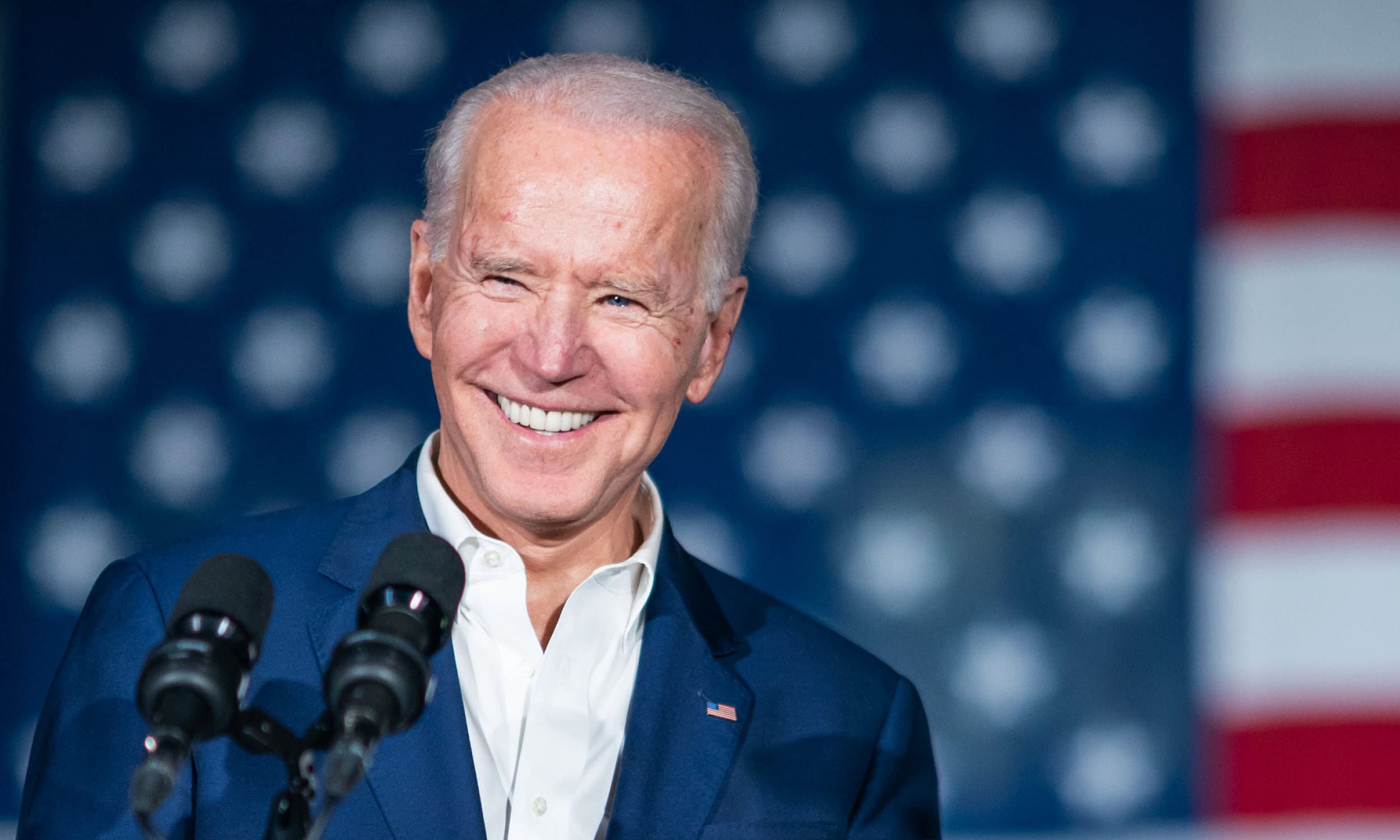Mississippi Today
Five things to know about the new drug pricing negotiations

The Biden administration has picked the first 10 high-priced prescription drugs subject to federal price negotiations, taking a swipe at the powerful pharmaceutical industry. It marks a major turning point in a long-fought battle to control ever-rising drug prices for seniors and, eventually, other Americans.
Under the 2022 Inflation Reduction Act, Congress gave the federal government the power to negotiate prices for certain high-cost drugs under Medicare. The list of drugs selected by the Centers for Medicare & Medicaid Services will grow over time.
The first eligible drugs treat diabetes, blood clots, blood cancers, arthritis, and heart disease — and accounted for about $50 billion in spending from June 2022 to May 2023.
The United States is clearly an outlier on drug costs, with drugmakers charging Americans many times more than residents of other countries “simply because they could,” Biden said Tuesday at the White House. “I think it’s outrageous. That’s why these negotiations matter.”
He added, “We’re going to keep standing up to Big Pharma and we’re not going to back down.”
Democratic lawmakers cheered the announcement, and the pharmaceutical industry, which has filed a raft of lawsuits against the law, condemned it.
The companies have until Oct. 2 to present data on their drugs to CMS, which will make initial price offers in February, setting off negotiations set to end next August. The prices would go into effect in January 2026.
Here are five things to know about the impact:
1. How important is this step?
Medicare has long been in control of the prices for its services, setting physician payments and hospital payments for about 65 million Medicare beneficiaries. But it was previously prohibited from involvement in pricing prescription drugs, which it started covering in 2006.
Until now the drug industry has successfully fought off price negotiations with Washington, although in most of the rest of the world governments set prices for medicines. While the first 10 drugs selected for negotiations are used by a minority of patients — 9 million — CMS plans by 2029 to have negotiated prices for 50 drugs on the market.
“There’s a symbolic impact, but also Medicare spent $50 billion on these 10 drugs in a 12-month period. That’s a lot of money,” said Juliette Cubanski, deputy director of KFF’s analysis of Medicare policy.
The long-term consequences of the new policy are unknown, said Alice Chen, vice dean for research at University of Southern California’s Sol Price School of Public Policy. The drug industry says the negotiations are essentially price controls that will stifle drug development, but the Congressional Budget Office estimated only a few drugs would not be developed each year as a result of the policy.
Biden administration officials say reining in drug prices is key to slowing the skyrocketing costs of U.S. health care.
2. How will the negotiations affect Medicare patients?
In some cases, patients may save a lot of money, but the main thrust of Medicare price negotiation policy is to provide savings to the Medicare program — and taxpayers — by lowering its overall costs.
The drugs selected by CMS range from specialized, hyper-expensive drugs like the cancer pill Imbruvica (used by about 26,000 patients in 2021 at an annual price of $121,000 per patient) to extremely common medications such as Eliquis (a blood thinner for which Medicare paid about $4,000 each for 3.1 million patients).
While the negotiations could help patients whose Medicare drug plans require them to make large copayments for drugs, the relief for patients will come from another segment of the Inflation Reduction Act that caps drug spending by Medicare recipients at $2,000 per year starting in 2025.
3. What do the Medicare price negotiations mean for those not on Medicare?
One theory is that reducing the prices drug companies can charge in Medicare will lead them to increase prices for the privately insured.
But that would be true only if companies aren’t already pricing their drugs as high as the private market will bear, said Tricia Neuman, executive director of KFF’s program on Medicare policy.
Another theory is that Medicare price negotiations will equip private health plans to drive a harder bargain. David Mitchell, president of the advocacy group Patients for Affordable Drugs, predicted that disclosure of negotiated Medicare prices “will embolden and arm private sector negotiators to seek that lower price for those they cover.”
Stacie B. Dusetzina, a professor of health policy at Vanderbilt University, said the effect on pricing outside Medicare isn’t clear.
“I’d hedge my bet that it doesn’t change,” she said.
Nonetheless, Dusetzina described one way it could: Because the government will be selecting drugs for Medicare negotiations based partly on the listed gross prices for the drugs — distinct from the net cost after rebates are taken into account — the process could give drug companies an incentive to lower the list prices and narrow the gap between gross and net. That could benefit people outside Medicare whose out-of-pocket payments are pegged to the list prices, she said.
4. What are drug companies doing to stop this?
Even though negotiated prices won’t take effect until 2026, drug companies haven’t wasted time turning to the courts to try to stop the new program in its tracks.
At least six drug companies have filed lawsuits to halt the Medicare drug negotiation program, as have the U.S. Chamber of Commerce and the Pharmaceutical Research and Manufacturers of America, known as PhRMA.
The lawsuits include a variety of legal arguments. Merck & Co., Johnson & Johnson, and Bristol Myers Squibb are among the companies arguing their First Amendment rights are being violated because the program would force them to make statements on negotiated prices they believe are untrue. Lawsuits also say the program unconstitutionally coerces drugmakers into selling their products at inadequate prices.
“It is akin to the Government taking your car on terms that you would never voluntarily accept and threatening to also take your house if you do not ‘agree’ that the taking was ‘fair,’” Janssen, part of Johnson & Johnson, wrote in its lawsuit.
Nicholas Bagley, a law professor at the University of Michigan, predicted the lawsuits would fail because Medicare is a voluntary program for drug companies, and those wishing to participate must abide by its rules.
5. What if a drug suddenly gets cheaper by 2026?
In theory, it could happen. Under guidelines CMS issued this year, the agency will cancel or adjourn negotiations on any drug on its list if a cheaper copycat version enters the market and finds substantial buyers.
According to company statements this year, two biosimilar versions of Stelara, a Johnson & Johnson drug on the list, are prepared to launch in early 2025. If they succeed, it would presumably scotch CMS’ plan to demand a lower price for Stelara.
Other drugs on the list have managed to maintain exclusive rights for decades. For example, Enbrel, which the FDA first approved in 1998 and cost Medicare $1.5 billion in 2021, will not face competition until 2029 at the earliest.
KFF Health News is a national newsroom that produces in-depth journalism about health issues and is one of the core operating programs at KFF—an independent source of health policy research, polling, and journalism. Learn more about KFF.
This article first appeared on Mississippi Today and is republished here under a Creative Commons license.
Mississippi Today
New Stage’s ‘Little Women’ musical opens aptly in Women’s History Month
Ties that bind, not lines that divide, at the heart of “Little Women” are what make Louisa May Alcott’s beloved novel such an enduring classic. More than a century and a half since its 1868 publication, the March sisters’ coming-of-age tale continues to resonate in fresh approaches, say cast and crew in a musical version opening this week at New Stage Theatre in Jackson, Mississippi.
“Little Women, The Broadway Musical” adds songs to Alcott’s story of the four distinct March sisters — traditional, lovely Meg, spirited tomboy and writer Jo, quiet and gentle Beth, and artistic, pampered Amy. They are growing into young women under the watchful eye of mother Marmee as their father serves as an Army chaplain in the Civil War. “Little Women, The Broadway Musical” performances run March 25 through April 6 at New Stage Theatre.
In a serendipitous move, the production coincides with Women’s History Month in March, and has a female director at the helm — Malaika Quarterman, in her New Stage Theatre directing debut. Logistics and scheduling preferences landed the musical in March, to catch school matinees with the American classic.
The novel has inspired myriad adaptations in film, TV, stage and opera, plus literary retellings by other authors. This musical version debuted on Broadway in 2005, with music by Jason Howland, lyrics by Mindi Dickstein and book (script) by Allan Knee.
“The music in this show brings out the heart of the characters in a way that a movie or a straight play, or even the book, can’t do,” said Cameron Vipperman, whose play-within-a-play role helps illustrate the writer Jo’s growth in the story. She read the book at age 10, and now embraces how the musical dramatizes, speeds up and reconstructs the timeline for more interest and engagement.
“What a great way to introduce kids that haven’t read the book,” director Quarterman said, hitting the highlights and sending them to the pages for a deeper dive on characters they fell in love with over the two-and-a-half-hour run time.

Joy, familial warmth, love, courage, loss, grief and resilience are all threads in a story that has captivated generations and continues to find new audiences and fresh acclaim (the 2019 film adaptation by Greta Gerwig earned six Academy Award nominations).
In current contentious times, when diversity, equity and inclusion programs are being ripped out or rolled back, the poignant, women-centered narrative maintains a power to reach deep and unite.
“Stories where females support each other, instead of rip each other apart to get to the finish line — which would be the goal of getting the man or something — are very few and far between sometimes,” Quarterman said. “It’s so special because it was written so long ago, with the writer being such a strong dreamer, and dreaming big for women.
“For us to actualize it, where a female artistic producer chooses this show and believes in a brand new female director and then this person gets to empower these great, local, awesome artists — It’s just really been special to see this story and its impact ripple through generations of dreamers.” For Quarterman, a 14-year drama teacher with Jackson Public Schools active in community theater and professional regional theater, “To be able to tell this story here, for New Stage, is pretty epic for me.”
Alcott’s story is often a touchstone for young girls, and this cast of grown women finds much in the source material that they still hold dear, and that resonates in new ways.

“I relate to Jo more than any other fictional character that exists,” Kristina Swearingen said of her character, the central figure Jo March. “At different parts of my life, I have related to her in different parts of hers.”
The Alabama native, more recently of New York, recalled her “energetic, crazy, running-around-having-a-grand-old-time” youth in high school and college, then a career-driven purpose that led her, like Jo, to move to New York.
Swearingen first did this show in college, before the loss of grandparents and a major move. Now, “I know what it’s like to grieve the loss of a loved one, and to live so far away from home, and wanting to go home and be with your family but also wanting to be in a place where your career can take off. .. It hits a lot closer to home.”
As one of four sisters in real life, Frannie Dean of Flora draws on a wealth of memories in playing Beth — including her own family position as next to the youngest of the girls. She and siblings read the story together in their homeschooled childhood, assigning each other roles.

“Omigosh, this is my life,” she said, chuckling. “We would play pretend all day. … ‘Little Women’ is really sweet in that aspect, to really be able to carry my own experience with my family and bring it into the show. … It’s timeless in its nature, its warmth and what it brings to people.”
Jennifer Smith of Clinton, as March family matriarch Marmee, found her way in through a song. First introduced to Marmee’s song “Here Alone” a decade ago when starting voice lessons as an adult, she made it her own. “It became an audition piece for me. It became a dream role for me. It’s been pivotal in opening up doors for me.”
She relishes aging into this role, countering a common fear of women in the entertainment field that they may “age out” of desirable parts. “It’s just a full-circle moment for me, and I’m grateful for it.”

Quarterman fell in love with the 1969 film version she watched with her sister when they were little, adoring the family’s playfulness and stability. Amid teenage angst, she identified with the inevitable growth and change that came with siblings growing up and moving on. Being a mom brings a whole different lens.
“Seeing these little people in your life just growing up, being their own unique versions, all going through their own arc — it’s just fun, and I think that’s why you can stay connected” to the story at any life juncture, she said.
Cast member Slade Haney pointed out the rarity of a story set on a Northeastern homestead during the Civil War.
“You’re getting to see what it was like for the women whose husbands were away at war — how moms struggled, how sisters struggled. You had to make your own means. … I think both men and women can see themselves in these characters, in wanting to be independent like Jo, or like Amy wanting to have something of value that belongs to you and not just just feel like you’re passed over all the time, and Meg, to be valuable to someone else, and in Beth, for everyone to be happy and content and love each other,” Haney said.
New Stage Theatre Artistic Director Francine Reynolds drew attention, too, to the rarity of an American classic for the stage offering an abundance of women’s roles that can showcase Jackson metro’s talent pool. “We just always have so many great women,” she said, and classics — “To Kill a Mockingbird” and “Death of a Salesman,” for instance — often offer fewer parts for them, though contemporary dramas are more balanced.
Reynolds sees value in the musical’s timing and storyline. “Of course, we need to celebrate the contributions of women. This was a woman who was trying to be a writer in 1865, ’66, ’67. That’s, to me, a real trailblazing thing.
“It is important to show, this was a real person — Louisa May Alcott, personified as Jo. It’s important to hold these people up as role models for other young girls, to show that you can do this, too. You can dream your dream. You can strive to break boundaries.”
It is a key reminder of advancements that may be threatened. “We’ve made such strides,” Reynolds said, “and had so many great programs to open doors for people, that I feel like those doors are going to start closing, just because of things you are allowed to say and things you aren’t allowed.”
For tickets, $50 (discounts for seniors, students, military), visit www.newstagetheatre.com or the New Stage Theatre box office, or call 601-948-3533.
This article first appeared on Mississippi Today and is republished here under a Creative Commons license.![]()
Mississippi Today
Rolling Fork – 2 Years Later

Tracy Harden stood outside her Chuck’s Dairy Bar in Rolling Fork, teary eyed, remembering not the EF-4 tornado that nearly wiped the town off the map two years before. Instead, she became emotional, “even after all this time,” she said, thinking of the overwhelming help people who’d come from all over selflessly offered.
“We’re back now, she said, smiling. “People have been so kind.”


“I stepped out of that cooler two years ago and saw everything, and I mean, everything was just… gone,” she said, her voice trailing off. “My God, I thought. What are we going to do now? But people came and were so giving. It’s remarkable, and such a blessing.”

“And to have another one come on almost the exact date the first came,” she said, shaking her head. “I got word from these young storm chasers I’d met. He told me they were tracking this one, and it looked like it was coming straight for us in Rolling Fork.”
“I got up and went outside.”
“And there it was!”
“I cannot tell you what went through me seeing that tornado form in the sky.”
The tornado that touched down in Rolling Fork last Sunday did minimal damage and claimed no lives.
Horns honk as people travel along U.S. 61. Harden smiles and waves.
She heads back into her restaurant after chatting with friends to resume grill duties as people, some local, some just passing through town, line up for burgers and ice cream treats.


Rolling Fork is mending, slowly. Although there is evidence of some rebuilding such as new homes under construction, many buildings like the library and post office remain boarded up and closed. A brutal reminder of that fateful evening two years ago.


















This article first appeared on Mississippi Today and is republished here under a Creative Commons license.![]()
Mississippi Today
Remembering Big George Foreman and a poor guy named Pedro
George Foreman, surely one of the world’s most intriguing and transformative sports figures of the 20th century, died over the weekend at the age of 76. Please indulge me a few memories.
This was back when professional boxing was in its heyday. Muhammad Ali was heavyweight champion of the world for a second time. The lower weight divisions featured such skilled champions and future champs as Alex Arugello, Roberto “Hands of Stone” Duran, Tommy “Hit Man” Hearns and Sugar Ray Leonard.
Boxing was front page news all over the globe. Indeed, Ali was said to be the most famous person in the world and had stunned the boxing world by stopping the previously undefeated Foreman in an eighth round knockout in Kinshasa, Zaire, in October of 1974. Foreman, once an Olympic gold medalist at age 19, had won his previous 40 professional fights and few had lasted past the second round. Big George, as he was known, packed a fearsome punch.
My dealings with Foreman began in January of 1977, roughly 27 months after his Ali debacle with Foreman in the middle of a boxing comeback. At the time, I was the sports editor of my hometown newspaper in Hattiesburg when the news came that Foreman was going to fight a Puerto Rican professional named Pedro Agosto in Pensacola, just three hours away.
Right away, I applied for press credentials and was rewarded with a ringside seats at the Pensacola Civic Center. I thought I was going to cover a boxing match. It turned out more like an execution.
The mismatch was evident from the pre-fight introductions. Foreman towered over the 5-foot, 11-inch Agosto. Foreman had muscles on top of muscles, Agosto not so much. When they announced Agosto weighed 205 pounds, the New York sports writer next to me wise-cracked, “Yeah, well what is he going to weigh without his head?”
It looked entirely possible we might learn.
Foreman toyed with the smaller man for three rounds, almost like a full-grown German shepherd dealing with a tiny, yapping Shih Tzu. By the fourth round, Big George had tired of the yapping. With punches that landed like claps of thunder, Foreman knocked Agosto down three times. Twice, Agosto struggled to his feet after the referee counted to nine. Nearly half a century later I have no idea why Agosto got up. Nobody present– or the national TV audience – would have blamed him for playing possum. But, no, he got up the second time and stumbled over into the corner of the ring right in front of me. And that’s where he was when Foreman hit him with an evil right uppercut to the jaw that lifted the smaller man a foot off the canvas and sprayed me and everyone in the vicinity with Agosto’s blood, sweat and snot – thankfully, no brains. That’s when the ref ended it.
It remains the only time in my sports writing career I had to buy a T-shirt at the event to wear home.
So, now, let’s move ahead 18 years to July of 1995. Foreman had long since completed his comeback by winning back the heavyweight championship. He had become a preacher. He also had become a pitch man for a an indoor grill that bore his name and would sell more than 100 million units. He was a millionaire many times over. He made far more for hawking that grill than he ever made as a fighter. He had become a beloved figure, known for his warm smile and his soothing voice. And now he was coming to Jackson to sign his biography. His publishing company called my office to ask if I’d like an interview. I said I surely would.
One day at the office, I answered my phone and the familiar voice on the other end said, “This is George Foreman and I heard you wanted to talk to me.”
I told him I wanted to talk to him about his book but first I wanted to tell him he owed me a shirt.
“A shirt?” he said. “How’s that?”
I asked him if remembered a guy named Pedro Agosto. He said he did. “Man, I really hit that poor guy,” he said.
I thought you had killed him, I said, and I then told him about all the blood and snot that ruined my shirt.
“Man, I’m sorry about that,” he said. “I’d never hit a guy like that now. I was an angry, angry man back then.”
We had a nice conversation. He told me about finding his Lord. He told me about his 12 children, including five boys, all of whom he named George.
I asked him why he would give five boys the same name.
“I never met my father until late in his life,” Big George told me. “My father never gave me nothing. So I decided I was going to give all my boys something to remember me by. I gave them all my name.”
Yes, and he named one of his girls Georgette.
We did get around to talking about his book, and you will not be surprised by its title: “By George.”
This article first appeared on Mississippi Today and is republished here under a Creative Commons license.![]()
://mississippitoday.org”>Mississippi Today.
-

 News from the South - Florida News Feed5 days ago
News from the South - Florida News Feed5 days agoFamily mourns death of 10-year-old Xavier Williams
-

 News from the South - Alabama News Feed6 days ago
News from the South - Alabama News Feed6 days ago1 Dead, Officer and Bystander Hurt in Shootout | March 25, 2025 | News 19 at 9 p.m.
-

 News from the South - Arkansas News Feed7 days ago
News from the South - Arkansas News Feed7 days agoReport: Proposed Medicaid, SNAP cuts would cost Arkansas thousands of jobs, $1B in GDP
-

 News from the South - North Carolina News Feed7 days ago
News from the South - North Carolina News Feed7 days agoClassmates remember college student hit by car, killed near NC State
-

 News from the South - Alabama News Feed4 days ago
News from the South - Alabama News Feed4 days agoSevere storms will impact Alabama this weekend. Damaging winds, hail, and a tornado threat are al…
-

 News from the South - Alabama News Feed3 days ago
News from the South - Alabama News Feed3 days agoUniversity of Alabama student detained by ICE moved to Louisiana
-

 News from the South - Oklahoma News Feed7 days ago
News from the South - Oklahoma News Feed7 days agoRep. Tom Cole Says DOGE Is ‘Pretty Responsive’ to His Concerns
-

 News from the South - Virginia News Feed7 days ago
News from the South - Virginia News Feed7 days agoVa. community colleges end diversity, equity and inclusion practices










































